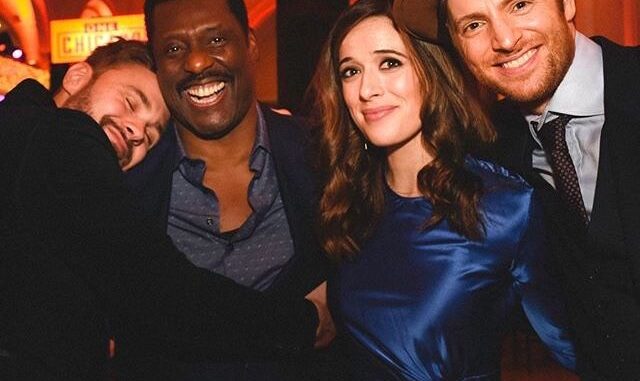
Every great television series eventually hits a moment of reckoning—a narrative fork in the road where it must either push boundaries or fall back on formula. For Chicago P.D., that moment arrived in the form of an episode that didn’t just shake the precinct—it shook the very foundation of what the show stood for. What began as a routine missing person’s case spiraled into a complex, emotionally devastating storyline that tested every member of the Intelligence Unit in ways they never expected
The case itself seemed simple at first: a teenage girl vanished from Chicago’s South Side. Voight’s team took the lead, expecting a difficult, but straightforward investigation. But nothing about this case was ordinary. Clue by clue, layer by layer, the team peeled back a horrifying truth: the girl’s disappearance was linked to a wide-reaching criminal enterprise—one built not only on human trafficking and exploitation but on systemic corruption. And worse yet, the rot extended into the very institutions sworn to protect the city.
As the team dug deeper, they unearthed disturbing connections to city hall, powerful local business leaders, and even high-ranking members of the CPD. What had started as a missing persons case quickly evolved into a moral battleground, where the line between right and wrong blurred into shades of grey. Intelligence wasn’t just chasing criminals anymore—they were staring down the barrel of their own department’s complicity.
At the center of it all was Hank Voight, a man known for bending the rules when justice demands it. But this time, the stakes were different. As the walls closed in and the team faced pressure from every direction—legal, political, personal—Voight had to ask himself a question he’s long avoided: What happens when your loyalty to the badge stands in direct opposition to the truth? And can you live with the cost of choosing one over the other?
For Kim Burgess, the episode was nothing short of transformative. Refusing to let another girl vanish into silence, she went undercover, putting herself in immense danger to uncover critical evidence. It wasn’t just bravery—it was defiance in the face of a system that often prefers silence to exposure. Her actions were not only heroic—they were essential.
Adam Ruzek, caught between duty and disillusionment, nearly walked away for good. The weight of what they uncovered—the complicity, the cover-ups, the human cost—left him questioning whether he could continue serving a system that felt increasingly broken.
Fans responded with overwhelming passion. Social media lit up with praise for the bold direction the writers had taken. Viewers called it one of the most powerful, thought-provoking arcs in the show’s history. Some were angry. Others were moved. But no one was indifferent. And that’s the mark of television at its best—when it dares to be more than entertainment.
This wasn’t just an episode. It was a statement. A reminder that Chicago P.D. isn’t afraid to pull back the curtain and show us the mess behind the badge. It’s not content with simple narratives or clean endings. It understands that real justice is messy, complicated, and often heartbreaking.
